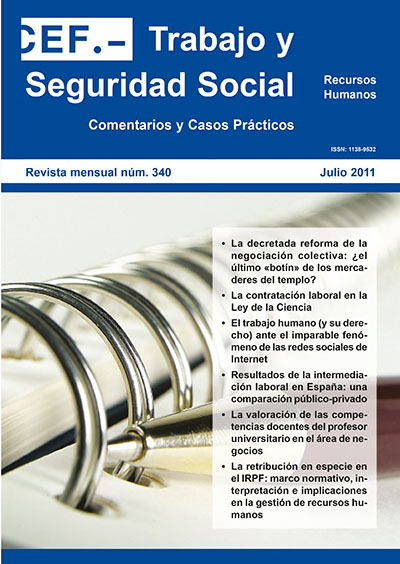Promulgated the reform of collective bargaining: will the last «booty» of the temple?
DOI:
https://doi.org/10.51302/rtss.2011.5125Keywords:
collective agreements, collective bargaining, productivity, efficiency wagesAbstract
The Spanish collective bargaining system was dragging a significant number of «pathologies», structural and functional for years, although it has enjoyed reasonably good health as a whole since 1994. Under the guise of correcting these dysfunctions in a definitive form, the Government has introduced a major reform of the most important aspects of the system, but behind this approach is hidden or not clearly economic reason, as false as it is powerful: for improve employment must improve competitiveness and for this we must reduce the «price of labor», then you have to make a model of collective bargaining to abandon the traditional concessive logic –reason for the improvement of workers' rights–, to embrace a more «productive» collective bargaining, more useful for economic growth and improved productivity. Although this claim is not proven, nor in theory nor in practice, the legislature encourages the disappearance of certain levels of bargaining, as the «provincial sector collective» agreement for «the company agreement», which is presumed greater economic efficiency. However, the legislature does not directly certify the death of the provincial collective agreements, but that still leaves scope for their salvation, if necessary, by the collective actors, if they arrive at «structure collective agreements» of the Article 83.2 Employment Law.


















